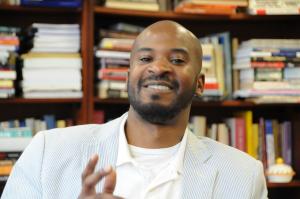Event Date:
Event Date Details:
Meetings will be held on Zoom from 3:30-4:45 PM PST on Thursdays unless indicated otherwise. The workshop is open to all faculty and graduate students. Attendees are expected to read the paper in advance of the workshop. The Zoom link will be circulated to the listserv before each meeting and available on the department calendar. To be added to the listserv, please email hwohl@ucsb.edu or join culture@soc.ucsb.edu on Google Groups.
Event Location:
- Zoom
Waverly Duck, North Hall Endowed Chair
The "Trouble" with Emotions, Trust Conditions, Expectations and a Theory of AutisticConsciousness in Children Being Tested for Autism.
This ethnomethodological and ethnographic study investigates the various methods whereby verbally fluent children with autism spectrum disorder (ASD) respond to questions about emotions on the Autism Diagnostic Observation Schedule (ADOS-II) in a clinical setting. In particular, it focuses on the “interactional trouble”—lack of shared expectations and reciprocity—such children have when answering questions related to emotions, which clinicians often frame as part of a “game.” Drawing on video data of children being tested for autism, the study shows that the abstract competence—the use of disembedded thought—exhibited by children with ASD is not recognized because its expression goes against the expectations of the clinician when using standardized measures. More specifically, we argue that the way children with ASD speculate about what neurotypical people expect from them is a form of “autistic” intelligence and “autistic” consciousness that is systematically overlooked. For the most part, clinicians expect children to formulate and describe their emotions in abstract, metaphorical language (e.g., “boiling water,” “butterflies in my stomach,” “high as a kite,” etc.). This abstract framing puts certain children at a disadvantage, as they often frame emotions related to pain, happiness, and fear in terms of concrete, lived experiences.
Consequently, they come across as less competent than their neurotypical peers. Close inspection of ASD children’s responses, however, shows that what may appear as incompetence from the standpoint of the test is, in actuality, the product of sophisticated strategies children develop to answer questions about emotions—strategies that are routinely misinterpreted, misrecognized, and met with confusion due to how the ADOS-II is administered and how autism has been constituted and regulated within the clinic. Interactional troubles of the child and clinician make these ordinarily tacit constitutive and regulatory practices visible and reveal how the interaction order of the clinic produces socially “incompetent” children. Finally, we make the case for a theory of mind that considers an “autistic consciousness” that moves between neurotypical and autistic methods of sensemaking

